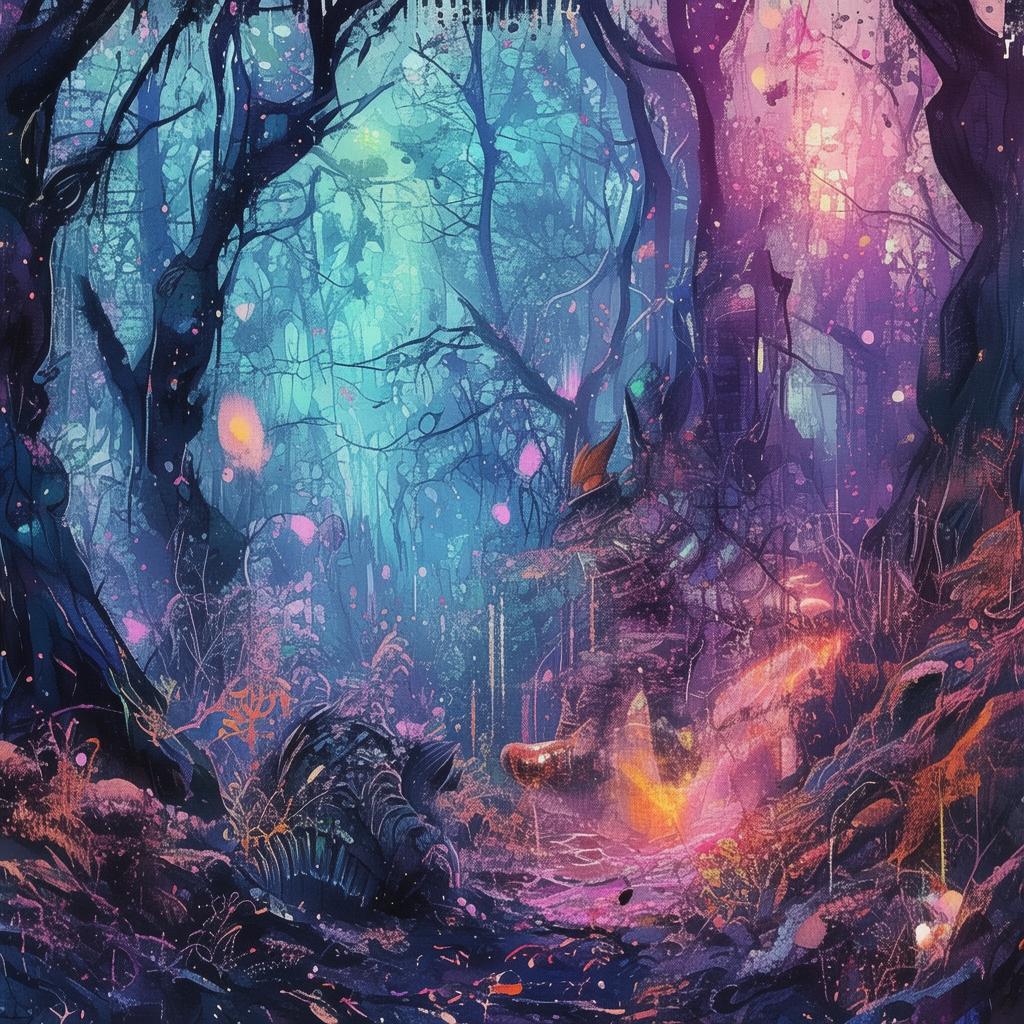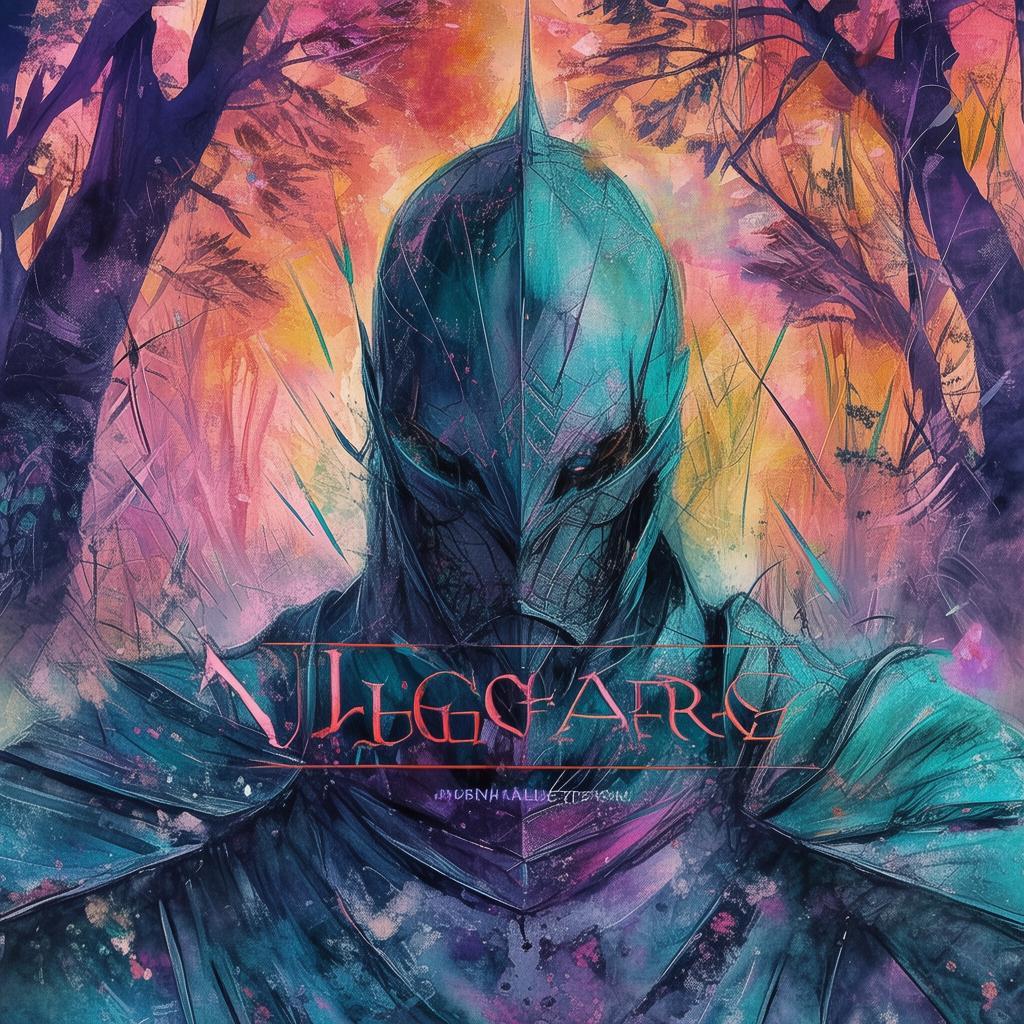The Parrot's Paradox: Echoes of the Forgotten
In the heart of an ancient library, nestled between the dust-laden shelves and the musty air that whispered secrets of ages past, there lay a book unlike any other. Its leather-bound cover bore an enigmatic symbol, a parrot with its beak open in a silent cry, a paradoxical image that seemed to defy the very essence of logic. The book was titled "The Parrot's Paradox: A Labyrinth of Words and Worlds," and it was said to contain the truth behind a forgotten legend.
Dr. Elena Vargas, a linguist with a penchant for the enigmatic, had been drawn to this library like a compass to the north star. Her research had taken her through countless volumes, each one revealing more about the intricate tapestry of human language. But it was this peculiar book that captivated her more than any other. She could feel its magic, a force that beckoned her to unravel its mysteries.
One evening, as the library grew quiet with the departure of the last researcher, Elena opened the book. The first page was blank, save for a single word etched in the center: "Begin." Intrigued, she began to read.
The book spoke of a world where words held power beyond the realm of human understanding. In this world, the meaning of a word was not fixed but a living entity, capable of evolving and taking on new forms. The most intriguing of these was the "Parrot's Paradox," a linguistic enigma that defied logic and reality.
Elena learned that the Parrot's Paradox was a creature of both language and thought. It could be seen as a bird with the ability to mimic words, but it could also be heard as the echo of a forgotten story, a narrative that was lost to time. The paradox was that the bird could only be seen when its voice was heard, and its voice could only be heard when it was seen.
As Elena delved deeper into the book, she realized that the Parrot's Paradox was not just a linguistic curiosity but a key to unlocking a hidden world. This world was a labyrinth of words and worlds, where the boundaries between reality and imagination blurred.
One day, as she sat reading, the book's pages began to flutter and dance before her eyes. She looked up to see a parrot perched upon the shelf, its eyes alight with an otherworldly glow. The parrot opened its beak and spoke, a voice that seemed to resonate with the very essence of language itself.
"Seek the Parrot's Paradox," the voice whispered. "It holds the key to the forgotten stories of our world."
Elena knew then that she had to find the Parrot's Paradox. She embarked on a journey that took her to the farthest corners of the earth, where she encountered people who spoke in riddles, places where the air seemed to hum with the energy of forgotten tales.
Her journey led her to a remote village in the Amazon, where the indigenous people spoke of a creature called the "Kawari," a word that was both a bird and a story. She learned that the Kawari could only be seen in the heart of the jungle, where the trees whispered secrets to those who would listen.
Determined to find the Kawari, Elena ventured into the jungle. The path was treacherous, and she had to rely on her wits and the guidance of a local shaman to navigate the labyrinthine forest. As she moved deeper into the jungle, she felt the weight of the world pressing down upon her, a sense that she was not alone.
One night, as she camped by a rushing river, she heard the sound of a bird. The sound was both familiar and foreign, a paradoxical melody that seemed to come from everywhere and nowhere. She followed the sound until she reached a clearing, where she saw a parrot unlike any she had ever seen. Its feathers shimmered with an otherworldly light, and its eyes held the secrets of a thousand forgotten stories.
The Parrot's Paradox spoke to her, a voice that resonated with the echoes of the past. "You have come seeking the forgotten," it said. "Now, you must listen."

Elena listened, and she heard the stories of the Kawari, the stories of the people, the stories of the world. She understood that the Parrot's Paradox was not just a creature but a symbol of the power of language to connect us all, to bridge the gap between the present and the past, the real and the imagined.
As the sun began to rise, Elena knew that her journey was over. She had found the Parrot's Paradox, and in doing so, she had found herself. She returned to the library, her heart filled with the stories of the forgotten, and she began to write them down, to share them with the world.
The book "The Parrot's Paradox: A Labyrinth of Words and Worlds" became a bestseller, a testament to the power of language and the stories it holds. And Elena, the linguist who had once sought the enigmatic bird, became a guardian of those forgotten tales, a keeper of the world's stories.
And so, the legend of the Parrot's Paradox was reborn, a reminder that in the labyrinth of words and worlds, there is always a path back to the heart of humanity.
✨ Original Statement ✨
All articles published on this website (including but not limited to text, images, videos, and other content) are original or authorized for reposting and are protected by relevant laws. Without the explicit written permission of this website, no individual or organization may copy, modify, repost, or use the content for commercial purposes.
If you need to quote or cooperate, please contact this site for authorization. We reserve the right to pursue legal responsibility for any unauthorized use.
Hereby declared.









